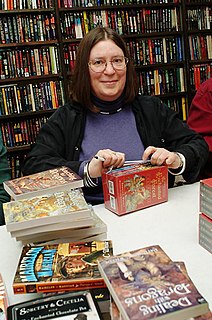A Quote by William Shakespeare
Related Quotes
If we come to sleep we are His drowsy ones And if we come to wake we are in His hands If we come to weeping we are His cloud full of raindrops And if we come to laughing we are His lightning in that moment If we come to anger and battle it is the reflection of His wrath And if we come to peace and pardon it is the reflection of His love Who are we in this complicated world?
Wrath, unlike love, is not one of the intrinsic perfections of God. Rather, it is a function of God's holiness against sin. Where there is no sin, there is no wrath-but there will always be love in God. Where God in His holiness confronts His image-bearers in their rebellion, there must be wrath, or God is not the jealous God He claims to be, and His holiness is impugned. The price of diluting God's wrath is diminishing God's holiness.
He could feel V's eyes sharpen, the vampire's fierce intellect churning over the situation. Among the brothers, Vishous had the most raw brainpower, but he paid for the privilage. Man, Wrath sure had his own demons, and they were no walk in the park, but he wouldn't have wanted Vishous's cross to bear. Seeing what had yet to come was a terrible burden. -Wrath's thoughts
The dragon is withered, His bones are now crumbled; His armour is shivered, His splendour is humbled! Though sword shall be rusted, And throne and crown perish With strength that men trusted And wealth that they cherish, Here grass is still growing, And leaves are yet swinging, The white water flowing, And elves are yet singing Come! Tra-la-la-lally! Come back to the valley!
In China there was once a man who liked pictures of dragons, and his clothing and furnishings were all designed accordingly. His deep affection for dragons was brought to the attention of the dragon god, and onde day a real dragon appeared before his window. It is said that he died of fright. He was probably a man who always spoke big words but acted differently when facing the real thing.
It is no strain of metaphor to say that the love of God and the wrath of God are the same thing, described from opposite points of view. How we shall experience it depends upon the way we shall come up against it: God does not change; it is man's moral state that changes. The wrath of God is a figure of speech to denote God's unchanging opposition to sin; it is His righteous love operating to destroy evil. It is not evil that will have the last word, but good; not sorrow, but joy; not hate, but love.
God's wrath is not an implacable, blind rage. However emotional it may be, it is an entirely reasonable and willed response to offenses against his holiness. But his love . . . wells up amidst his perfections and is not generated by the loveliness of the loved. Thus there is nothing intrinsically impossible about wrath and love being directed toward the same individual or people at the same time. God in his perfections must be wrathful against his rebel image-bearers, for they have offended him; God in his perfections must be loving toward his rebel image-bearers, for he is that kind of God






































